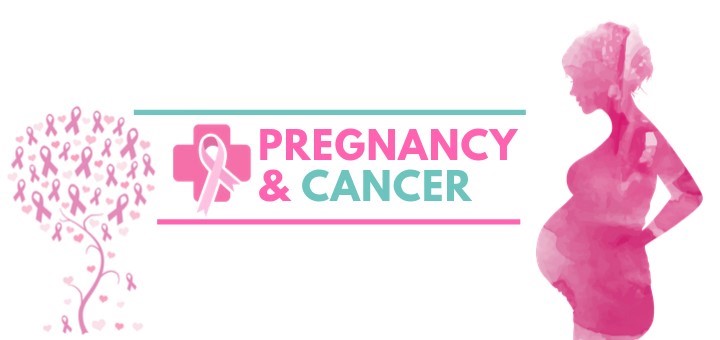Pregnancy and Brest Cancer
Pregnancy and breast cancer:
Diagnosis of breast cancer during pregnancy is relatively uncommon.
The incidence of pregnancy-related breast cancer (prenatal and post-natal) is approximately 15-35 per 100,000 births, while cases of breast cancer during pregnancy are less frequently diagnosed than in the first year after delivery. The prevalence of pregnancy-related breast cancer in females below 30, is around 20%, while it is 5% prevalent amongst women under 50. As women delay childbearing longer, the incidence of pregnancy-related breast cancer appears to be increasing. Pregnancy does not cause breast cancer, but if you already carry few breast cancer cells, the hormonal changes during pregnancy may. cause them to grow.

Breast cancer diagnosis during pregnancy
A Breast cancer which is occurred during pregnancy is a challenging clinical condition, because the health of the mother and the fetus must be considered in any treatment plan. In pregnant women, due to the physiological changes of the breast that occur as a result of pregnancy and breastfeeding, as well as the impossibility of using diagnostic methods based on radiation due to the protection of the fetus; Pregnancy-related breast cancer is more difficult to diagnose.
Although mammography is prohibited during pregnancy due to the exposure of the fetus to radiation, but in case of strong suspicion of cancer, mammography can be performed using shields or anti-radiation aprons that cover the uterus. Due to the fact that ultrasound uses sound waves, there is no known risk for the mother and the fetus, and it is a very suitable method for detecting breast masses during pregnancy. The use of breast MRI is prohibited during pregnancy due to the need to inject contrast material. And finally, there is no limitation for sampling if suspicious masses present.
There are no known cases of breast cancer that has spread to the fetus, although there are cases where cancer has been observed in the placenta. Some treatments may be delayed until the baby is born. The goal is to keep the period of pregnancy to full term as much as possible.
What are the treatment options for breast cancer during pregnancy?
Planning for treatment extremely depends on the severity of the cancer, and doctors consider the following issues for this purpose:
- Number and size of tumors
- The grade of the tumor that shows how long it takes for the cancer to grow and spread
- Breast cancer type based on tumor surface receptors
- The remaining duration of the patient's pregnancy
- General health of the patient
- Personal preferences
The goal is, if possible, to cure cancer or prevent it from spreading along with protecting the child's health. The cancer care team and obstetrician must coordinate to provide the best services for the patient and fetus.
Surgery
The first line of treatment for breast cancer is surgery, even if you are pregnant. This surgery may mean conserving the breast and removing the lump (lumpectomy) or mastectomy (breast removal) with removal of the axillary lymph nodes. Breast surgery for any stage of breast cancer during pregnancy is considered safe, although general anesthesia may pose risks to the fetus.
Chemotherapy
Chemotherapy is not performed in the first trimester of pregnancy, when the child's internal organs are growing. Studies show that the use of some chemotherapy drugs is safer in the second and third trimesters, but they are usually not prescribed in the last three weeks of pregnancy. The use of chemotherapy may depend on the specific type of breast cancer you have and how aggressive it is. In some special cases, especially when there is little time left until delivery, waiting until delivery is also an option for treatment.
Radiotherapy
High doses of radiation therapy at any time during pregnancy can increase the risks of harming the baby. These risks include the following:
- Abortion
- Slow fetal growth
- Birth defects
- Childhood cancer
For this reason, radiation therapy is usually postponed until after the birth of the baby.
Hormone Therapy
Hormonal treatments are not performed during pregnancy, so if breast cancer is sensitive to estrogen, hormone therapy is not started until after the child is born. And if you are on under hormone therapy, you are not advised to breastfeed your baby.
The perspective of breast cancer during pregnancy
The prognosis of breast cancer depends, above all, on the stage of the disease and the condition of receptors on the surface of the tumor, hence its occurrence during pregnancy does not worsen the prognosis. Determining that whether a person has breast cancer during pregnancy can be stressful for the patient and his family. It is suggested to consult a therapist during this time to help them along the way.
To do an examination and get more information, you can visit the breast disease clinic of Motamed Cancer Institute or call the number below:
Counselor's voice phone number: 021-66404020
Compiled, written and translated by:
Dr. Ahmad Fazilat
Faculty member, Dept of Genetics, Motamed Cancer Institute, ACECR



